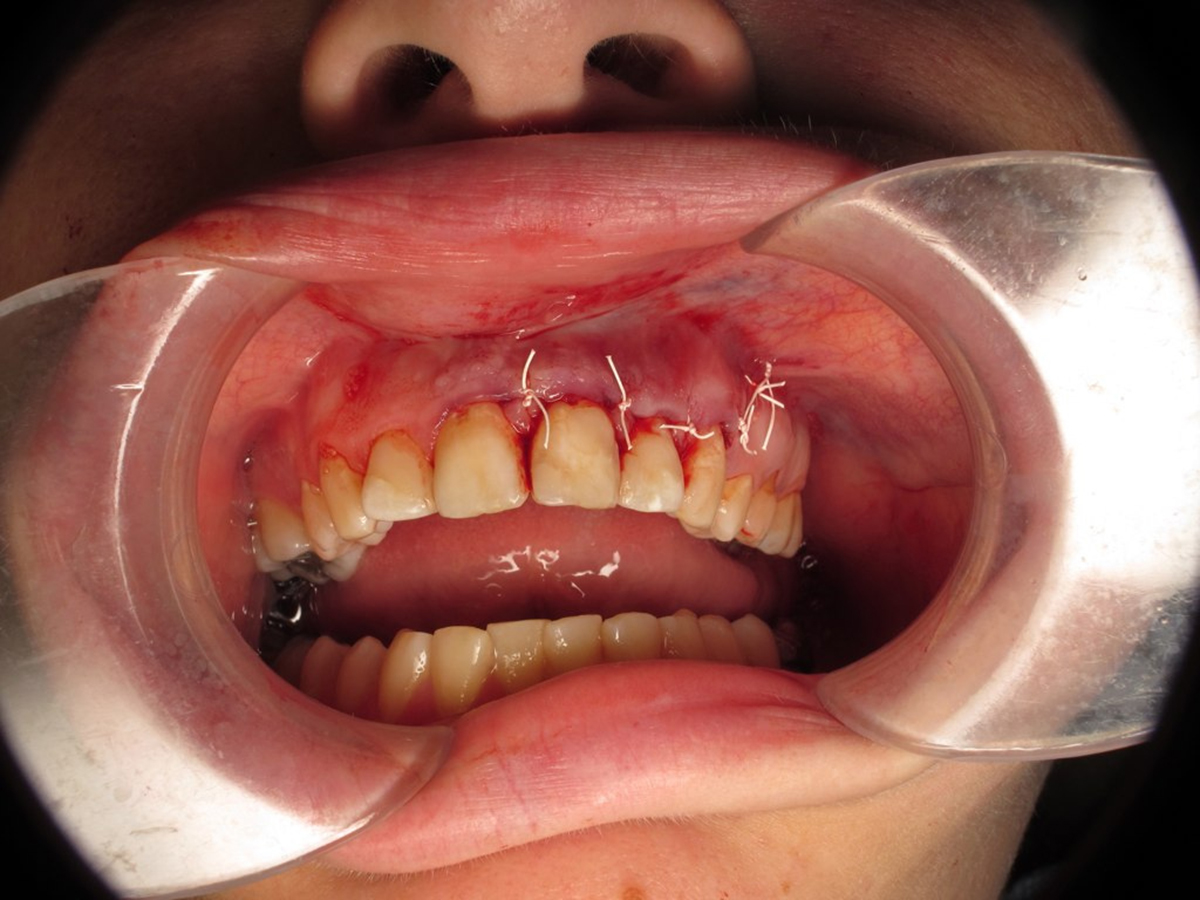An apicoectomy is a kind of surgical procedure that is done in the event of a persistent infection near the apex (the tip) of the roots. There are several reasons why this could be an option that your dentist puts in front of you.
Why Would You Need An Apicoectomy?
When a root canal is performed, the dentist will try to gain access to the centre chamber of your tooth and clean out the roots till their tips. Once this is done, the roots will be filled up with an inert material and hopefully, there should be no troublesome symptoms after that.

Sometimes, though, the infection goes beyond the tip of the root into the surrounding areas. This infection can be extremely hard to get rid of and can result in the formation of an abscess or a cyst. Some of the symptoms that people suffer from when this happens include pain, swelling, the development of a boil-like growth from where pus continues to flow, and a bad odor in the mouth.
In such cases, it is necessary to gain direct access to these infected sites and then clean them out.
There could also be another reason where a part of the root canal is calcified due to calcium deposits and cannot be bypassed non-surgically. In such a condition, the only way to gain access to and instrument the part of the root beyond the calcification is with the help of an apicoectomy.
Cysts are large fluid-filled pockets that can grow to considerably large sizes. These need to be removed because they can cause damage to the nearby structures and can get infected over a period of time. Numerous cysts develop near the root tips of the teeth and during the procedure of removing these cysts, a part of the apex of the root also has to be sacrificed.
How Is Apicoectomy Performed?
Apicoectomy would be termed as a minor oral surgical procedure that is performed by a general dentist confident and experienced enough to perform the procedure or by an oral surgeon usually in conjunction with an Endodontist.
Your dentist will take some X-rays of the area before the procedure is performed and maybe put you on some antibiotics a couple of days before the surgery. The entire procedure should take from anywhere between 30 and 90 minutes depending upon the tooth which is being operated on. The front teeth have only a single root and are more easily accessible, thus take the shortest amount of time while the back teeth with multiple roots are a much more complex undertaking.
READ Root Canal Treatment: No Longer The Stuff Of Nightmares
An apicoectomy is performed under local anesthesia and thus the patient will be aware of everything that is going around, only the area being operated on will be numb. A small cut into the gums will be given so that they can be removed from on top of the tooth and the bone near the apex.
Most often, the persistent infection would have destroyed the bone at the apex and the diseased tissues would be directly accessible. In other cases, however, it can be sometimes necessary to remove some of the bone as well.
Apicectomy Procedure, Risks, And Healing
Once the entire diseased portion has been removed, a few millimeters of the tooth root are removed because that is where the resistant microorganisms form colonies. The doctor may or may not choose to fill the area with some amount of bone graft once the disinfection has been done. Stitches will be placed for a duration of one week to 10 days.
Risks Associated With The Procedure
Being a minor oral surgical procedure, there are not too many risks involved, however there some things that patients should be aware of. Surgery in the upper back teeth can cause damage to the sinus lining and cause infection to spread to the sinuses.
In some cases, the doctor may not be able to perform the procedure at all if the root tips are extending into the sinus lining.
The most important nerve of the lower jaw runs in close approximation to the roots of the lower nerve and thus there is a risk of damage to that nerve. The preoperative X-rays should help the doctor determine the distance between the roots and the nerves, allowing a proper treatment plan to be formulated beforehand.

Healing
Healing after an Apicoectomy is quite rapid. The gums which were cut open to gain access to the underlying bone should heal within a week. Once the stitches have been removed, the bone underneath will continue to form.
Bone is notoriously slow to form, however, the process is quite predictable once proper disinfection has been achieved. It may take anywhere between six months and a year for any significant amount of bone formation to take place.
Precautions To Be Taken After the Procedure
Any strenuous physical activity should be avoided for a week after the procedure has been performed. This involves lifting heavy things, yoga, aerobics or running.
Normal day to day life can go on as normal. Care should be taken to not entangle the brush in the stitches as that can be quite painful. The doctor will probably advise you not to eat extremely hot or spicy food for the first week after the procedure has been performed.
A mouthwash may also be recommended for use in the healing period to aid in the maintenance of oral hygiene. Some of the things to absolutely avoid include tobacco in any form (chewed or smoked), excessive alcohol (since some of the antibiotics may react and have an adverse effect) and putting excessive pressure on the treated teeth.
READ Connection Between Root Canals And Cancer
Smoking, in particular, is one of the main reasons why an apicoectomy procedure might not be successful or the surgical site can get infected.
Conclusion
An apicoectomy is often the last resort of a dentist to try and save the tooth. An attempt to retreat the failing root canal would almost certainly have made unless it was not possible to do so for other reasons. The procedure itself is quite straightforward and has a high rate of success.
- www.colgate.com/en/us/oc/oral-health/procedures/root-canals/article/apicoectomy
- www.aae.org/patients/treatments-and-procedures/endodontic-surgery-explained.aspx
- Photo courtesy of allthingsdenstry: www.flickr.com/photos/65716669@N02/6102319844/
- Photo courtesy of westpark: www.flickr.com/photos/west-park/1476316090/
- Photo courtesy of allthingsdenstry: www.flickr.com/photos/65716669@N02/6102319844/


Your thoughts on this